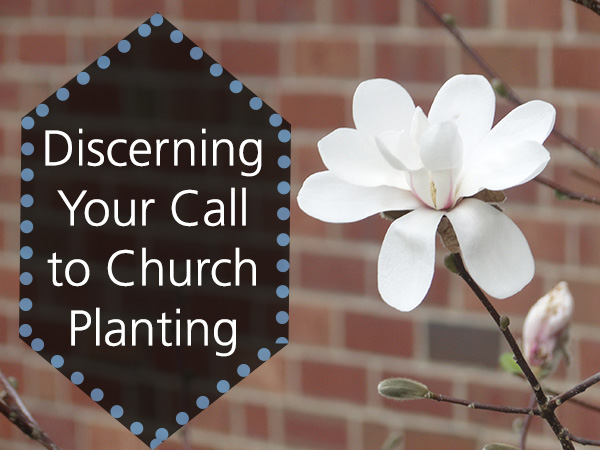I’ve often heard successful writers say that you shouldn’t get into writing if you can imagine doing anything else with your life. And, while I never want to limit the wide manifestations of call into one particular rule—as if God speaks to us each in the same language—the way I’ve seen call, both in my own life and in the life of others, is more as a practice, a vision, or a need that just won’t let us go.
Gaining Skills as a Church Planter
When I first got into the work of church planting, I started to recognize it in my own willingness to do all sorts of things that I would have otherwise hated and would never have undertaken for lesser reasons. I went to seminary to get my Master of Divinity terrified of speaking publically, but not particularly afraid of preaching class or the fact that I was preparing the way for myself to speak publically roughly every Sunday until retirement. I entered ministry conflict averse, but knowing that for my little church plant to grow and grow healthy, I would have to engage in conflict and enforce boundaries pretty regularly, so I set about practicing and learning how to do it. As an introvert, I learned how to work a room, cold call strangers, and chat people up about not only the weather, but their hopes for their community, their children, and their vocations. As a pastor, I learned how to deal with dead mice on a trap, leaks in the basement, and the legal incorporation process. Frankly, though, these steps were not about my determination, strength of character, or will power, as much I might like to pretend they were. They happened because those challenges were small annoyances compared with the vision that had a hold of me. If they were the means to do what God was calling me to do, then I knew I had what I needed to do them, even if they weren’t always fun or comfortable.
Ministry Under Particular Terms
As a church planter and now as a theological educator, I always have questions for people who are interested in church planting, or really church leadership in any context, only under particular terms. That is not to say that one should ever violate one’s essential boundaries, but I’m a big believer in being open to the surprises God has for us. A thought that begins with, “I would never be willing to…” and ends with something that is not immoral or damaging to yourself or others, is not a great way to declare yourself called to church planting. After all, church planting is full of surprises, as we go out beyond the boundaries of where church currently is. For instance, you very well may never want to work with children. But if you refuse to imagine that God might call you to a work with children, you might miss a great gift to you as a leader and a key piece of the ministry you are called to build—speaking from experience.
Doing the Work God’s Calling Us to Do
The truth is we worship a God so desperate to convey God’s love to us in a way that we might understand it, that God became human and submitted to an excruciating death, alone in a garbage dump on the edge of town. While the crucifixion is already done, once and for all, if we see ourselves as part of bearing that kind of powerful love into the world, we will likely find ourselves doing things and welcoming people that are difficult, surprising, or even uncomfortable. If we are unwilling to face that, we may not be ready to do the work we imagine God calling us to do. If we are willing to face it, the measure of joy and beauty set before us is likely more than we can yet imagine.
The Rev. Karen Rohrer is director of the Church Planting Initiative at Pittsburgh Theological Seminary. Before joining the CPI team, Karen was co-pastor and co-founder of Beacon, a Presbyterian Church in the Kensington section of Philadelphia. The saints of Beacon taught her contextual ministry, the joy of being church, and the unique grace of being a lady pastor and boss in a neighborhood of matriarchs. The building of Beacon taught her amateur handy-woman and moisture remediation skills, and that a particular space really can be a reminder that you are loved. As director of the Church Planting Initiative, she is excited to vision new ways the church can bear good news to the world, and to support and resource the leaders God is calling forth to make it so.

